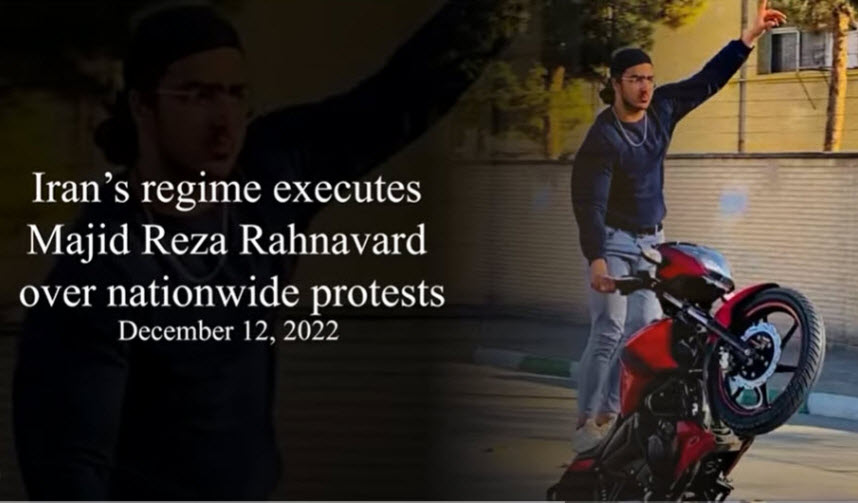
Ali Khamenei, the regime’s supreme leader, has repeatedly stated that defiant youth, whom he refers to as “rioters,” will face harsh punishment. By executing Mohsen, Khamenei demonstrated to society that demanding freedom comes at a high cost. However, the Iranian people’s reaction to the executions of Mohsen and Majid caused Khamenei to fail at the first hurdle.
Iranians gathered at Majid’s grave hours after his martyrdom and vowed to continue their fight for freedom. Defiant youths set fire to Basij paramilitary bases, seminaries, and regime symbols from south to east and north to west in Iran. People blocked Sattarkhan Street in Tehran, where Mohsen was arrested and clashed with security forces
Protesters in Sistan and Baluchestan province took to the streets on Friday, pledging to continue Mohsen’s path to democracy and freedom by chanting, “We swear on the blood of those who died, we will [resist] to the end!” The regime’s efforts to divide and conquer the nationwide uprising by labeling ethnic minorities as separatists were debunked by these chants.
A case study in #Iran's criminal judiciary system: The trial and execution of #MajidrezaRahnavard #IranRevoIution https://t.co/SvbCgfJkfQ pic.twitter.com/SCKnv9zi8S
— People's Mojahedin Organization of Iran (PMOI/MEK) (@Mojahedineng) December 13, 2022
Furthermore, the state-sanctioned murders of Mohsen and Majid drew international condemnation. Iranians around the world, primarily supporters of the Iranian opposition People’s Mojahedin of Iran (PMOI/MEK), held protest rallies from early morning until late at night, vowing to “resist to the end.”
Many mullahs and former officials criticized Mohsen’s execution, calling the charges of “Moharebeh” into question. Some argue that he should not have been executed because he did not kill security forces and only blocked the road. Others asserted that even if a security guard was killed, the state shouldn’t use “Moharebeh” charges and rather it should have sought “the path of amnesty” instead.
“Even if a protester takes up arms and kills the sacred Imam, he is not a Mohareb, and the state shouldn’t sentence him to death. We should show mercy and amnesty despite his crime,” Soroush Mahalati, a state-affiliated cleric, told the Sarpoosh website on December 9.
Other officials warned their colleagues that these executions would not quell Iran’s ongoing and relentless wave of dissent.
“If you want to rule, keep in mind that hangings will not help you. If you want to protect the system, ask yourself why people are protesting against us. What have we done that youths are still on the streets three months later?” According to the state-run Sarpoosh, another seminary teacher, Fazel Meibodi, stated on December 11.
On September 22, when the nationwide uprising began, the clerical regime began its so-called “smart” oppression. On October 25 the Iranian Resistance revealed a classified report from the Revolutionary Guards (IRGC) in this regard in a statement issued on October 25.

The time has come for Western democracies to practically back the Iranian people’s revolution by cutting all ties with Tehran, closing embassies, expelling agents, and recognizing the Iranian people’s right to self-defense. These steps undoubtedly weaken Khamenei’s oppressive apparatus.

MEK Iran (follow us on Twitter and Facebook), Maryam Rajavi’s on her site, Twitter & Facebook, NCRI (Twitter & Facebook), and People’s Mojahedin Organization of Iran – MEK IRAN – YouTub







